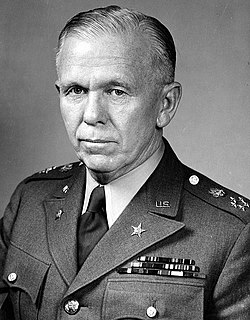A Quote by Henri Matisse
Hatred, rancor, and the spirit of vengeance are useless baggage to the artist. His road is difficult enough for him to cleanse his soul of everything which could make it more so.
Related Quotes
I have always sought to be understood and, while I was taken to task by critics or colleagues, I thought they were right, assuming I had not been clear enough to be understood. This assumption allowed me to work my whole life without hatred and even without bitterness toward criticism, regardless of its source. I counted solely on the clarity of expression of my work to gain my ends. Hatred, rancor, and the spirit of vengeance are useless baggage to the artist. His road is difficult enough for him to cleanse his soul of everything which could make it more so.
Strange is the vigour in a brave man's soul. The strength of his spirit and his irresistible power, the greatness of his heart and the height of his condition, his mighty confidence and contempt of danger, his true security and repose in himself, his liberty to dare and do what he pleaseth, his alacrity in the midst of fears, his invincible temper, are advantages which make him master of fortune.
Some souls think that the Holy Spirit is very far away, far, far, up above. Actually he is, we might say, the divine Person who is most closely present to the creature. He accompanies him everywhere. He penetrates him with himself. He calls him, he protects him. He makes of him his living temple. He defends him. He helps him. He guards him from all his enemies. He is closer to him than his own soul. All the good a soul accomplishes, it carries out under his inspiration, in his light, by his grace and his help.
Every time that a man has, with a pure heart, called upon Osiris, Dionysus, Buddha, the Tao, etc., the Son of God has answered him by sending the Holy Spirit. And the Holy Spirit has acted upon his soul, not by inciting him to abandon his religious tradition, but by bestowing upon him light. It is, therefore, useless to send out missions to prevail upon the peoples of Asia, Africa or Oceania to enter the Church.
Man is more than his environment. It is from the innate quality of the Spirit in him, his inner storehouse, that he draws those ideas, his intuitions, which unify his perceptions of the external world instantaneously with a value which is qualitative and not quantitative, and which he embodies in the works of his culture - those achievements which belong not only to one particular time but to all times, and mark the path of his upward progress.
The humility of Jesus can be seen in the crib, in the exile to Egypt, in the hidden life, in the inability to make people understand Him, in the desertion of His apostles, in the hatred of His persecutors, in all the terrible suffering and death of His Passion, and now in His permanent state of humility in the tabernacle, where He has reduced Himself to such a small particle of bread that the priest can hold Him with two fingers. The more we empty ourselves, the more room we give God to fill us.
At that instant he knew that all his doubts, even the impossibility of believing with his reason, of which he was aware in himself, did not in the least hinder his turning to God. All of that now floated out of his soul like dust. To whom was he to turn if not to Him in whose hands he felt himself, his soul, and his love?
George Lucas is the reason that we got to make this movie, you know, he was the man that created this whole galaxy, and I am incredibly grateful to him. He's an artist and he's a grown-up. And I take him at his word, and it doesn't mean I agree with everything he says, but I respect, you know, his right to his opinion.
The believer is sensible of his infirmities, for it is supposed that he is wrestling under them. He sees, he feels, that he is not man enough for his work; that his own hands are not sufficient for him, nor his own back for his burden; this is what drives him out of himself to the grace that is in Christ Jesus. And thus he lies open to the help of the Spirit, while proud nature in unbelievers is left helpless.







































